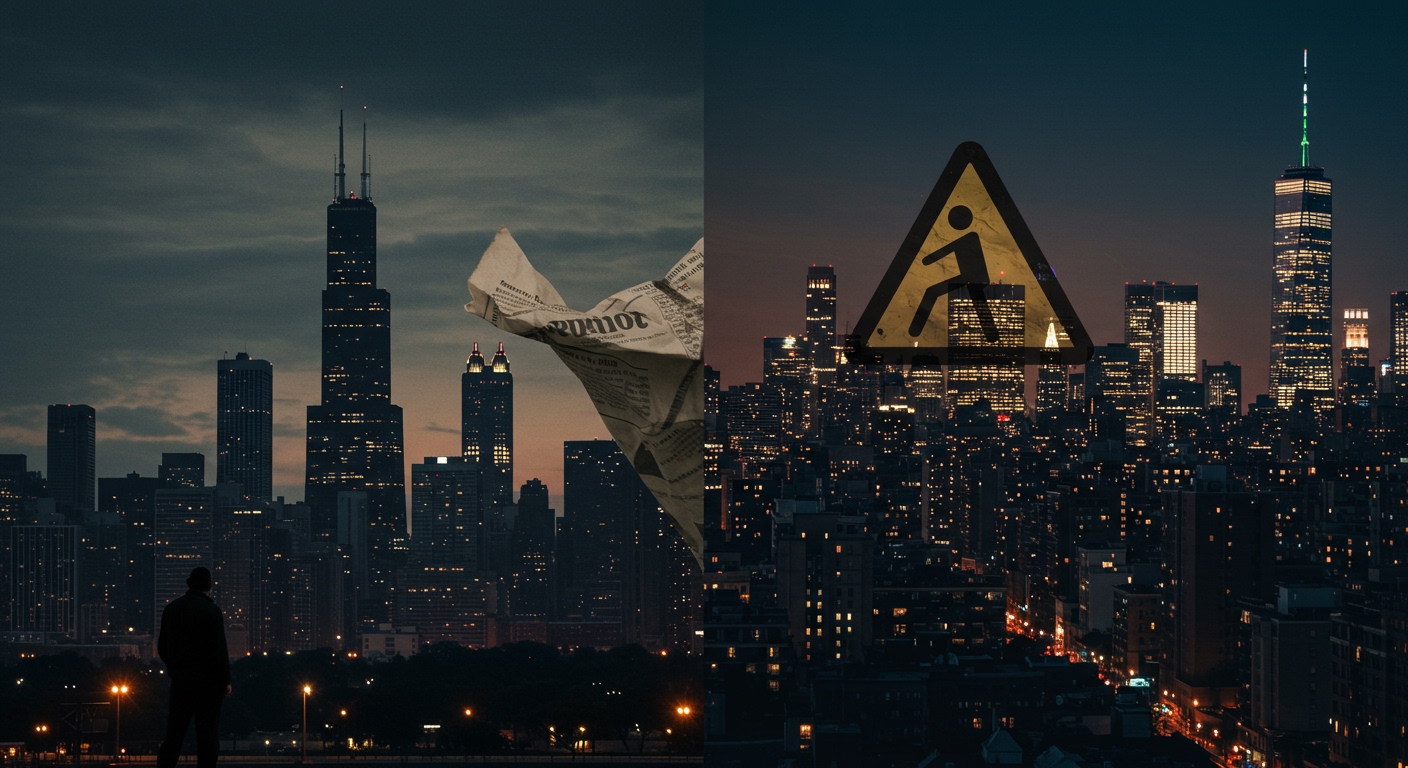CHICAGO/NEW YORK – In a rare and pointed intervention into another major city’s politics, the editorial board of the Chicago Tribune on Monday, June 24, 2025, issued a “stark warning” to New York City voters. The caution comes ahead of the New York City Democratic primary and specifically targets voters considering progressive candidate Zohran Mamdani.
The Tribune’s editorial drew direct parallels between Mamdani’s political stances and platform and the experience of Chicago under its current leadership, Mayor Brandon Johnson. Johnson, described by the Tribune as Chicago’s “embattled left-wing mayor,” serves as a cautionary tale in the newspaper’s view.
The Tribune’s Foreboding Message
The core of the Tribune’s message was encapsulated in a stark quote directed at New Yorkers: “We’ve seen this movie before, and the ending isn’t pretty.” The editorial board explicitly urged voters in New York not to repeat what they characterized as Chicago’s mistake in electing a democratic socialist.
The Tribune’s critique of Chicago’s governance under Johnson is central to its warning. The editorial noted that Mayor Johnson’s approval rating had significantly “cratered” in his second year in office. This decline, according to the board, reflects the speed with which progressive promises can collapse under the practical weight of governance and the fiscal realities facing a major city like Chicago.
Critiques of Chicago’s Leadership
The editorial outlined several specific failures and challenges during Johnson’s tenure that it linked to his progressive approach. Among these were a failed attempt to implement a significant $300 million tax hike, a failed effort to pass a “mansion tax” aimed at increasing real estate transaction costs, and the city’s struggles in building sufficient affordable housing units, often at excessive costs.
The Tribune also criticized Johnson for allegedly isolating himself from state and federal officials, hindering collaborative governance efforts. Furthermore, the editorial pointed to a costly contract negotiated with the Chicago Teachers Union as another example of policies it views as detrimental to the city’s financial health and operational efficiency.
Profiling Candidate Zohran Mamdani
The focus then shifted to Zohran Mamdani, the 33-year-old Queens assemblyman whose platform the Tribune views with alarm. The editorial characterized Mamdani as potentially “yet more radical” than Chicago’s Mayor Johnson, based on his proposed policies.
Mamdani’s platform includes several ambitious progressive proposals. These include implementing rent freezes to stabilize housing costs, establishing publicly run supermarkets to address food deserts and affordability, and making public transit entirely free for all residents. To fund these initiatives, his platform calls for billions in new taxes, primarily targeting corporations and wealthy individuals.
Broader Concerns Echoed
The Chicago Tribune’s editorial is not the sole voice raising concerns about electing Zohran Mamdani. The editorial board noted that its warning joins those previously articulated by other prominent publications in New York and beyond, including The New York Post, the Daily News, and The New York Times.
The convergence of concern from diverse media outlets underscores the significance of the policy debates currently unfolding in the New York City primary.
A Final Admonition from Chicago
The Chicago Tribune’s editorial concluded with a direct and potent final warning to potential New York voters. It cautioned against electing a candidate whose policies, in their view, could lead to New York becoming a less competitive and financially secure city.
The board underscored the sincerity and gravity of their warning by stating, “Trust us — we’re living that reality.” This final line served as a stark reminder of the consequences the Chicago Tribune believes have followed progressive governance in their own city, urging New Yorkers to consider this experience carefully as they head to the polls. The editorial board’s intervention highlights the increasingly interconnected nature of urban political debates across the United States.













